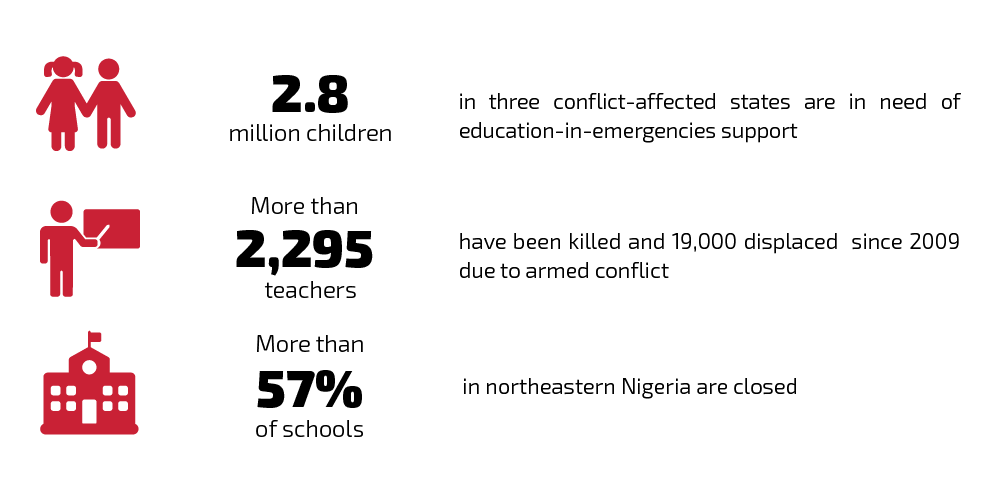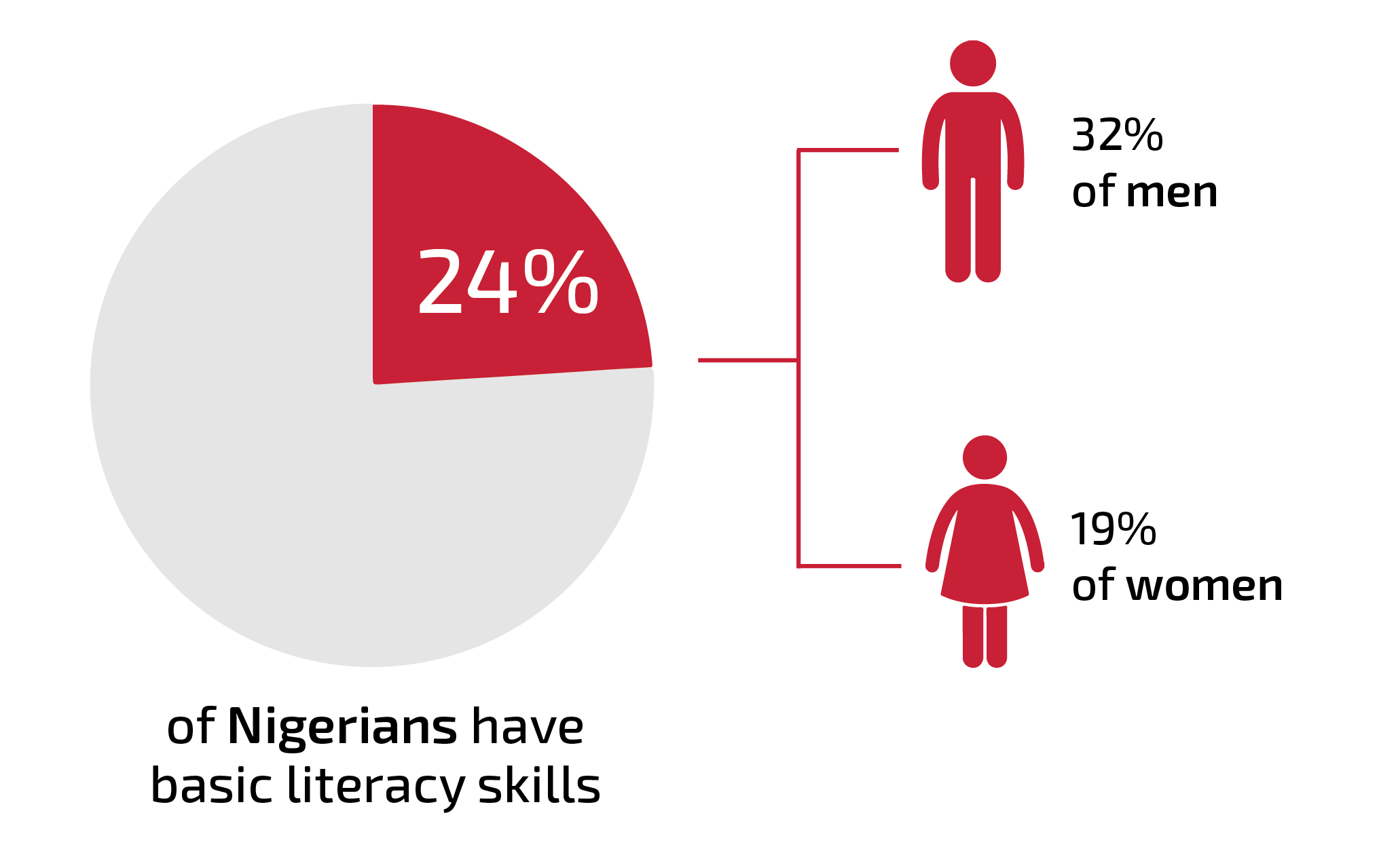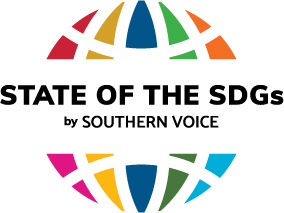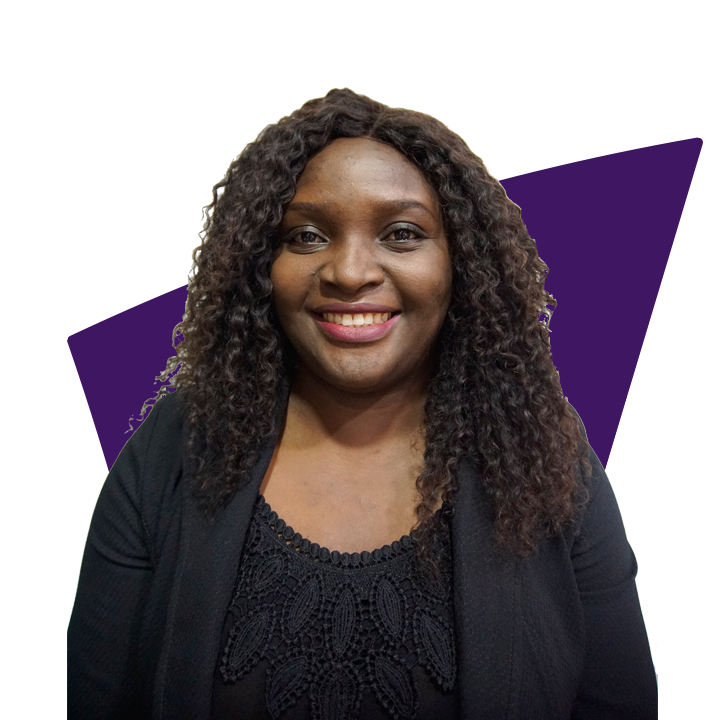Only 24% of Nigerians aged 15–24 with primary education have adequate literacy skills.
Our case study ‘Is Nigeria on track to achieving quality education for all? Drivers and implications’ shows that school-age children in the country are not acquiring basic literacy and numeracy skills. The report also identifies groups that are being excluded from quality education and the global forces that limit Nigeria’s capacity to deliver quality education.
Highlights

Violent conflict affects the provision of quality education in Nigeria, with the supply highly dependant on external factors.
Violence often causes teachers and students to flee their homes, and education infrastructure is frequently destroyed during the violence. In addition, education-in-emergencies support often falls short of delivering quality learning for children in conflict-affected areas.
A significant part of the population in Nigeria is being excluded from quality education. Only 24% of the population who have received a primary education have basic literacy and numeracy skills. Just 19% of Nigerian women can read, in comparison to 32% of men.
The situation is especially dire for nomadic peoples, the disabled and internally displaced children. They are excluded from education but cannot be quantified due to a lack of data.



Grace Onubedo
Senior Research FellowGrace is a Senior Research Fellow at the Centre for the Study of the Economies of Africa (CSEA). She holds a PhD in Economics and a master’s degree in Economics and Finance from the University of Leeds. She is an Affiliate member of the Association of Certified Chartered Accountants (ACCA).

Adedeji Adeniran
Senior Research FellowAdedeji is a Senior Research Fellow at CSEA. His research focuses on education economics, development finance, survey econometrics and health. He was a lecturer at the University of Witwatersrand, South Africa.

Chukwuka Onyekwena
Executive DirectorChukwuka is the Executive Director of CSEA. He holds a PhD in Economics from the University of Portsmouth. He is also a member of the Steering committee of the West African Think Tank Network (WATTNet).

Joseph Ishaku
Research AssociateJoseph is a Research Associate at CSEA. He holds a master’s degree in economics from University College London and a BA in Economics from the American University of Nigeria. His research covers countries in the West African region.

Mma Amara Ekeruche
Research AssociateMma is a Research Associate at CSEA. She holds a master’s degree in Economic Policy from University College London, and a BA in Economics from Kwame Nkrumah University of Science and Technology in Ghana.

Drusilla David
Communications and Institutional Advancement OfficerDrusilla is the Senior Communications/Institutional Advancement Officer at CSEA. Drusilla is responsible for Policy Research Communications and institutional strategies at CSEA.
